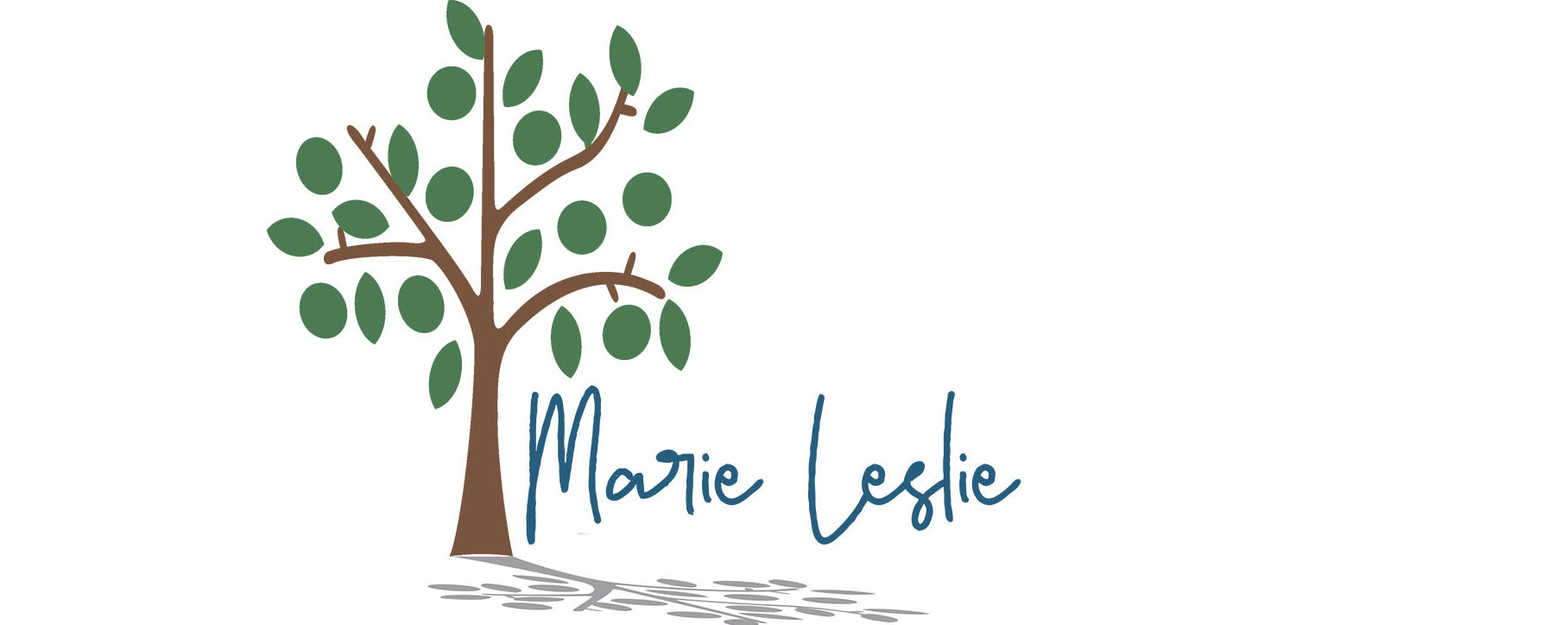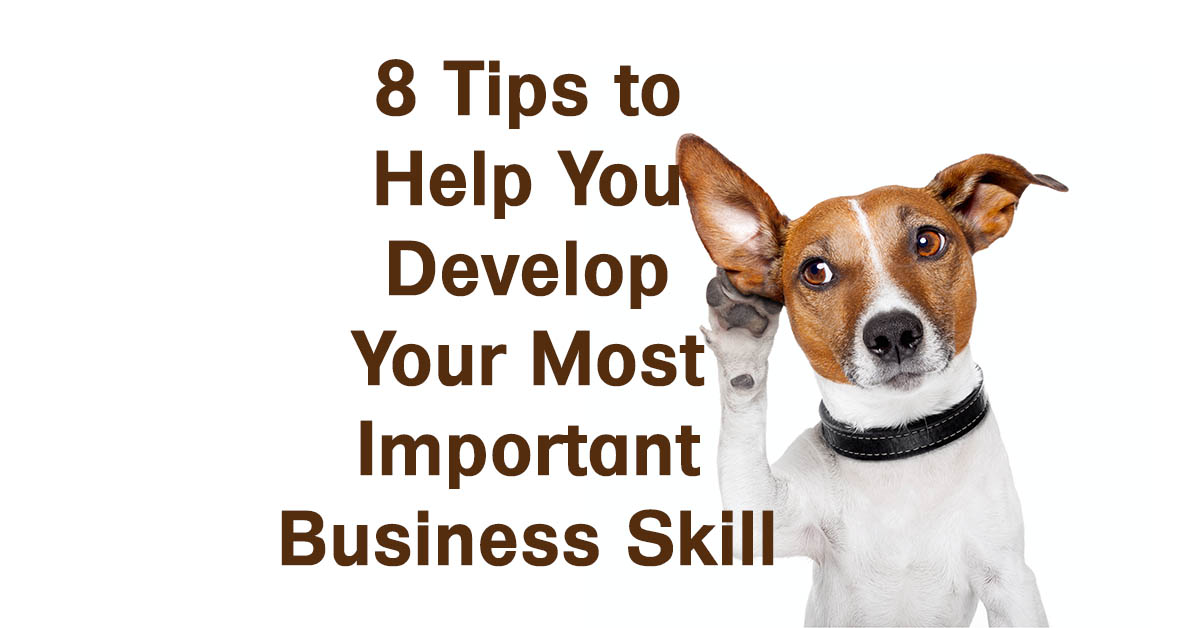8 Tips to Help You Develop Your Most Important Business Skill
Do you know what the most important business skill is?
It’s not sales.
It isn’t marketing.
It’s not picking the next “sure thing.”
It isn’t accounting (thank goodness for that!).
And it’s not networking.
The most important business skill isn’t any of these, but it is one of the keys to success in all of these skills.
The most important business skill is communication, and in my opinion more specifically–listening.

Yes, listening. Being able to communicate clearly is critical to success in any endeavor, whether business or personal. And one of the keys to clear and effective communication is becoming a good listener.
If you’re not listening, and listening to fully understand what your customers, prospects and associates are telling you (and not telling you), you are not going to last long in the business world.
The most successful business people succeed not because they are the best salespeople or the best marketers, but because they are the best at learning what is most important to their customers, co-workers and associates, determining what their needs are, and then filling those needs.
And how do they learn what those needs are? By listening.
If listening, and especially active, analytical listening isn’t one of your strengths, don’t despair. You can learn to be a better listener.
8 tips to help you develop your most important business skill
Make a decision. Decide that listening is an important skill. It sounds obvious but until you consciously decide to become a better listener, it’s not going to happen.
Be interested and be focused. When you are listening to someone, really listen to what they are saying. You need to focus all of your energy on the person you are listening to. Don’t be checking your phone messages, your email or your Twitter feed. Put it all down and listen to the speaker. Maintaining attention may be a challenge, especially if they’re not an adept speaker or it’s a topic that doesn’t necessarily interest you, but being attentive is a sign of respect that can go a long way toward understanding and relationship building.
Set your emotions aside. This can be hard, especially when it’s a hot-button issue, but setting your emotions and personal biases aside will help you be a more effective listener, and give you the opportunity to understand another point of view.
Keep an open mind. If you’ve already decided how this conversation is going to go, you’re not going to learn anything from it. Get rid of any preconceived notions you have about your speaker and open yourself up to the possibility of new ideas. Being able to set aside bias in communication so you can listen fully, can be a most important business skill in dealing with different types of people.
Don’t interrupt. Don’t anticipate what they’re going to say and insert your own solutions before you’ve heard what they have to say. Trying to provide a solution before they’ve had a chance to fully explain the problem may lead your speaker to believe you aren’t really interested in what they have to say.
Listen not only to what they’re saying, but what they’re not saying. I call this listening between the lines. Focus not just on the words but on the message. Sometimes, perceiving and understanding the things that are left unsaid can be the real key to serving someone. In addition, body language, tone of voice, cadence and other auditory and visual clues can help you understand more. Speaking isn’t just about words.
Take notes. It’s okay to take notes, even in a face-to-face conversation. No one expects you to remember everything. Taking notes will help you to remember the important points of the conversation and what is important to your speaker. It will also help you to frame appropriate questions that will help you learn more, which leads to our next point.
Ask questions that invite additional understanding. Invite the speaker to tell you more. Allow them to give you even more detail about what’s important to them and what they need and how you can fill that need. The more you know, the better you will be able to serve them and meet their needs and expectations.

As you employ these techniques and develop effective listening skills, you will see improvement in both your business and personal relationships. You’ll also come to understand how listening really is the most important business skill and be able to create even more success in your business.
This post contains affiliate links, which means I may earn some money if you click on one and make a purchase. It will not cost you any extra, and I will be grateful for your support. Read the full disclosure here.
If you want to improve your listening and communication skills for business, two of my favorite resource books are Effective Listening Skills, and I Hear You. The latter is great for both business and personal communication skills. Both are available with these affiliate links at Amazon.com.
I would love to hear how listening has helped you succeed in your business. Please share your experiences in the comment section below or drop me a message using the Contact link above.








I love this advice Marie. As a committed multi-tasker, this is something I probably need to work on. Although I do make sure to put down my phone, iPad or computer when talking to someone. It’s just plain rude to be so obviously halfway in a conversation like that, but it’s something I see more and more these days. It’s sad that businesses have to put signs at the counter that tell people to please not use their cell phones while doing business at the counter!
I agree. I am not a fan of cell phone overuse. I’m not one of those people you’ll see walking around the mall, talking on my phone. Truthfully, though I carry it all the time very few people actually have the number. I’m of the mind that I own it for MY convenience. I do use it for my business, but my business number comes through Google Voice, so I’m able to control its ability to ring through and when I am with another client, it goes to voice mail.
Great advice Marie. You can’t possibly give your customer what they want if you don’t listen when they tell you what they want.
I met with a client recently and went in anticipating that I would lead much of the discussion. As it turned out, my client had a lot to say, and I spent most of the time listening. In reviewing my meeting notes later, I realized how much I learned from that meeting just by listening and paying attention. Lesson learned! 🙂
I use to always think I was a good listener, but the older I got I realized the important components of what listening entails, and it was a hard lesson to learn for awhile.
It truly is a skill that we tend to forget about. Great article!
Marie, GREAT post and you are so right. I enjoy talking with people who really listen!
Great advice! I’m a huge note-taker and proud of it! LOL There is no way to remember everything I’m hearing without writing it down. Fantastic post!
I am, too, Martha. I learned it first in journalism school and then had a job where accurately recording conversations was a legal necessity, so I have learned to take notes about everything.
This is spot on, Marie. It’s always important to remember to listen to what your customers want versus what you think they want to hear. Great tips!
You are so right, Marie. You can’t provide the best product or service if you don’t LISTEN to what your customer or the marketplace really needs…